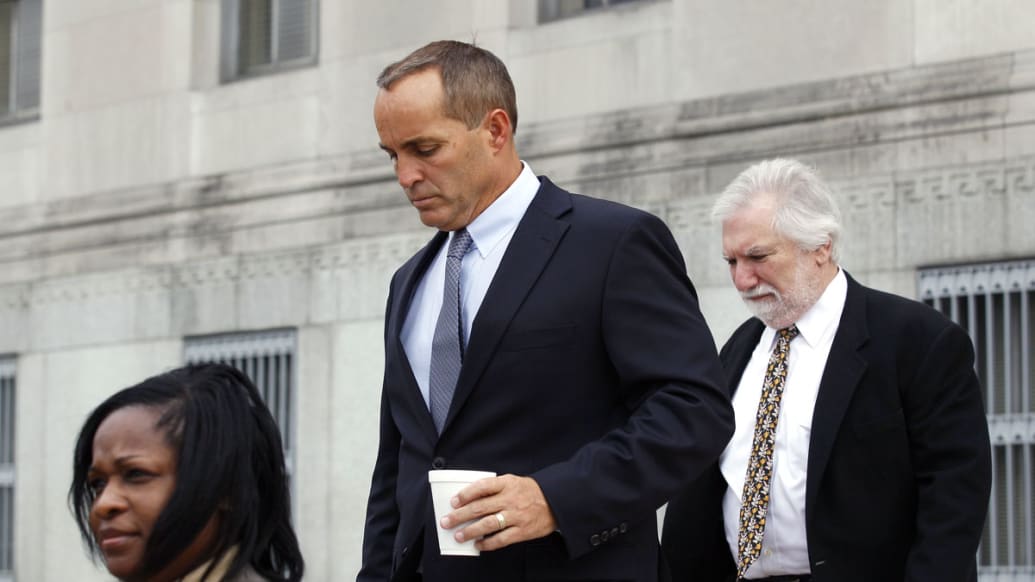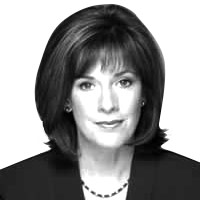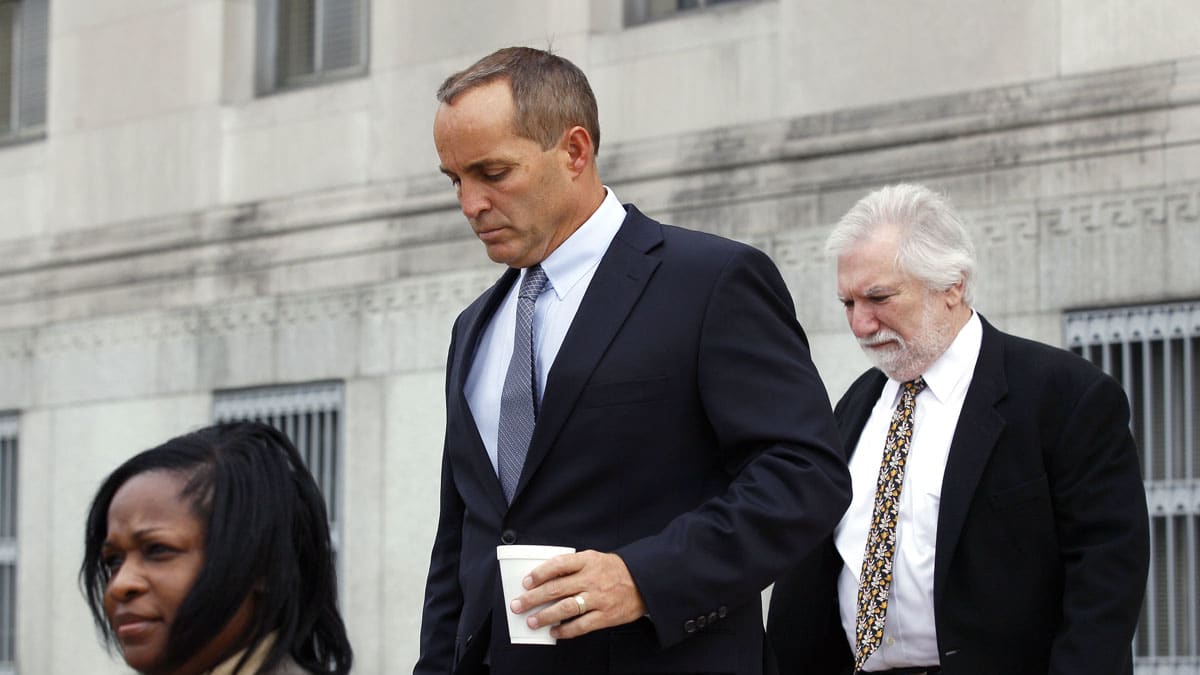As the long anticipated cross-examination of the government’s key witness, Andrew Young, got underway, the defense team’s opening statement was at the top of everyone’s mind.
“Follow the money … follow the money,” the attorney told jurors earlier this week. “All the money went into the bank account of Andrew Young.”
Senator John Edwards’s team insists that Young is the true culprit in a nearly $1 million scheme to use political donations to hide the senator’s pregnant mistress, and that Edwards—consumed with running for president at the time —had no substantive knowledge about where the money came from or how it was being spent. Edwards maintains he is innocent of the felony campaign-finance charges against him, listed in a six-count federal indictment.
But in what appeared to be a stunning turn of strategy, defense attorney Abbe Lowell barely mentioned the money trail as he stepped up to the podium to begin the process of chipping away at Young’s credibility. Instead, he started by pointing out discrepancies in Young’s testimony as compared to what he had written in his tell-all book, The Politician, and what he had said in various media interviews, speeches, and legal proceedings.
“Didn’t you sell your book on the proposition that every word in it was provably true?” Lowell asked Young. When confronted with his own book proposal Young had to admit that he had. The attorney then set about to discredit Young by reading passages from the book to the jury. Some of Lowell’s points seemed like nitpicking, such as the question of who had really come up with the idea for Senator Edwards to go on a “100-county trip” through North Carolina. Was it Young, or was it actually the defendant’s late wife, Elizabeth? (Young maintained it was his idea.) But other challenges mounted by the defense were far more damning.
“Didn’t you make up a story that John Edwards was so enamored of himself that he got a custom-made jacket with ‘49’ on it?” asked Lowell.
“No, I said that he got that as a gift,” Young replied.
“And you wrote that they were ‘the first family in waiting’—waiting to step into the White House?”
“Yes, sir,” Young replied.
Lowell then asked Young if he knew which number President Barack Obama became when he won the White House. Young had to admit he didn’t know.
“Well, it wasn’t 49. It was 44!” Lowell said with a flourish. So why would Edwards get a jacket with a number on it for a term he wouldn’t have a chance to win for 20 more years? Young was speechless.
Throughout the half-day of cross examination, Lowell dropped various question bombs designed to stick in the jurors’ minds and elicit information from Young that the defense will use against him in its closing statement.
“Isn’t it true that on every occasion you have lied about the facts?” Lowell barked. And in his consistently quiet demeanor, Young answered, “No, sir.”

“Didn’t you purposely exaggerate many of those stories (in the book) to make a better story for yourself?” Again, Young replied, “No, sir.”
“You really hate John Edwards, don’t you?” After a pause Young said, “I have mixed feelings.”
But the jury already knew Young’s true feelings for his former boss, the man who he claims convinced him to tell the press he had fathered the baby being carried by the senator’s mistress. Edwards, said Young, was the man who had persuaded him to pack up his wife and three young children and escort Rielle Hunter to a series of safe houses arranged by Fred Baron, a Texas billionaire and campaign-finance chairman. For six long months, the Youngs had the difficult task of babysitting Hunter and her infant child. And Andrew Young had often expressed feelings for his boss that were decidedly stronger than “mixed,” as Lowell showed the jury.
“I want to personally shit on his head,” Young wrote in a February 28, 2009 email. And the response from a sympathetic friend was, “No! In his mouth.” The jury also heard that during an appearance on Fox News, Young had called Edwards, “Despicable, despicable!” When he and his wife Cheri appeared on Oprah, Young declared, “He was the man who promised me a bright future and then abandoned me to national disgrace.”
Lowell scored points painting Young as a striver who climbed the economic ladder by riding Senator Edwards’s coattails, but who left the job a bitter man unable to find employment after being involved in such a public scandal.
Earlier in the day, the prosecution wrapped up direct examination of Young by recounting the final days of drama before the baby was born. Young’s testimony was augmented by more voice mails from a chipper John Edwards periodically calling to check in on the nomads he had allegedly sent into hiding to save his reputation. After the baby was born, Young told the jury, the senator stopped returning his calls for some four months. “I was scared,” Young said. “I was scared for my family and worried about how to support my family.”
During this time the Youngs were stuck living in a Santa Barbara, Calif., house with the demanding Rielle and her newborn, and they wanted to go home. The former aide testified he turned for help to Edwards’s campaign money man, the late Fred Baron, but was told by him they could never return to North Carolina because an over-the-top angry Elizabeth Edwards “posed a threat to the Young family.” Several voice mails and emails between Edwards, Baron, and Young were shown to the jury, which seemed to go a long way toward proving the conspiracy count against Edwards. The communications are full of plans about how to stave off the press and keep the runaways funded and in hiding until it was clear Edwards had no chance at the presidency, the vice presidency, or any kind of cabinet appointment in the new Obama administration.
After the National Enquirer trapped Edwards inside the Beverly Hilton Hotel during a clandestine July 2008 visit with Rielle and his baby daughter, the lid on the secret scandal was blown sky high. With the truth no longer deniable, the Youngs moved home to Chapel Hill, N.C., their long, strange journey finally over.

